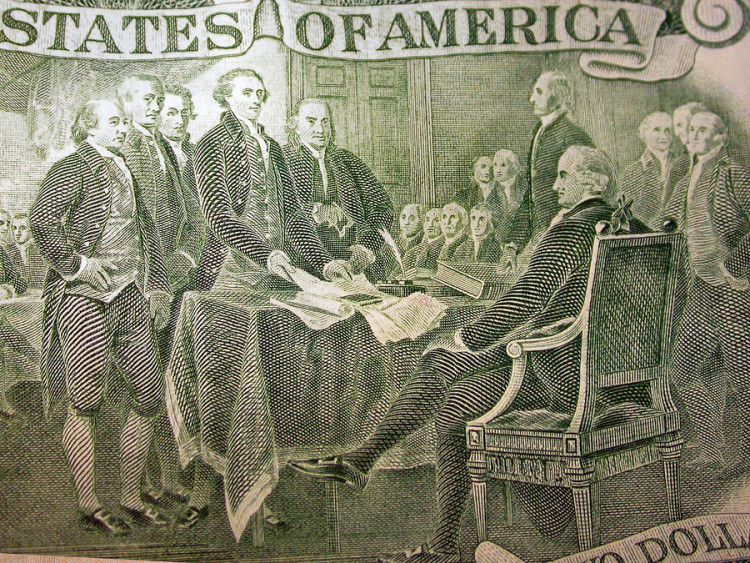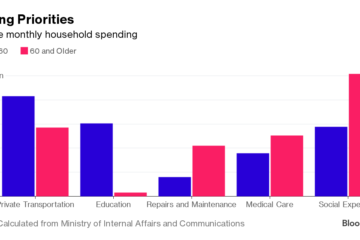Matt Levine’s Money Stuff: Big Banks, Big Bonds and Big Jackpots

©2016 Bloomberg View
O0Y3V76KLVR7
JPMorgan
JPMorgan tweeted its earnings this morning. They were good, at $1.32 per share, up quarter-on-quarter but down year-on-year, and “much of the improvement in profit came from continuing cuts to the bank’s expenses and work force.” Here are the press release, thepresentation and the financial supplement.
Elsewhere in big banks, here is Dan Davies arguing that banks should ignore investor demands for double-digit returns on equity:
If social mores were different, an obvious response for most bank chief executives, especially investment bankers, would be: “You loved this business when it had equity-to-asset ratios of 2 per cent and a 16 per cent RoE. Why do you hate it now that it has 5 per cent equity to assets and a 9 per cent RoE?”
Others, though, worry that bank underperformance could attract activists:
“If valuations stay depressed as they are it creates incentive for banks to unlock value,” CLSA banks analyst Mike Mayo said. “Shareholders have every right to push for a credible plan.”
And here is the story of Lion Point Capital, an activist fund “pushing for changes at Ally Financial,” which “raises the prospect that activism will soon spread to big institutions, like Bank of America, that suffer from lagging share prices.”
Goldman Sachs
Disclosure, I used to work at Goldman Sachs, and I think it is a good place, but I understand that in American politics it is generally seen as a bad thing if your campaign is financed by Goldman Sachs. Sends a bit of the wrong message, especially when “Republicans and Democrats Agree: We Hate Wall Street.” So it is understandable that, when Ted Cruz and his wife borrowed “as much as $500,000” from Goldman Sachs to finance Cruz’s first Senate campaign, he did not report that loan on his Federal Election Commission disclosures. Understandable but, apparently, illegal. If Cruz ends up being the Republican nominee, and if Hillary Clinton ends up being the Democratic nominee, it will be interesting to see if she uses this fact against him. She may be hampered by the fact that Goldman Sachs has given her more money ($675,000), and she doesn’t have to pay it back.
Elsewhere in Goldman news, it sent in a comment letter to the Securities and Exchange Commission on IEX’s application to become a stock exchange. The letter is supportive, and I suppose that in SEC comments, unlike in electoral politics, support from Goldman Sachs is viewed as a good thing. Goldman has some quibbles though, expressing its concern “that exchange- affiliated routing broker-dealers may have access to and use the proprietary market data of the exchange to benefit their own order routers,” and urging the SEC “to undertake a review of the structure and operations of exchanges to ensure that there are adequate regulations enforcing the arms-length separation between their operations as public exchanges and those as non- public broker-dealers.”
In sadder Goldman news, it “is planning to cut up to 10% of its fixed-income traders and salespeople later this quarter, a steeper-than-usual pruning of the firm’s least-productive employees.” I suppose getting rid of your worst employees is better than getting rid of a random sampling, or whoever happens to be sitting in the wrong seats, but it is a bit harsh on the “no more than 250 people” involved that these cuts, which are mostly about market conditions, are characterized so personally.
Powerball
For many readers, yesterday’s Money Stuff came with a big red e-mail warning to the effect of “Be careful with this message. It contains content that’s typically used to steal personal information.” Sorry about that. Don’t worry, though: The e-mail wasn’t actually dangerous, but presumably just triggered those warnings because it was so full of tips on how to win the lottery, which I guess is frowned upon in e-mail- security circles. But thanks to everyone who sent me their credit card numbers and bank information, and I will keep you posted on my efforts to reclaim those bearer bonds in Switzerland that I inherited.
Also sorry if those lottery tips didn’t work out for you. I didn’t win the Powerball and you probably didn’t either, though if you did let’s discuss the very reasonable rates on my new Money Stuff Platinum Subscription Package. There were winners in California, Florida and Tennessee, and if any of them were running the Great Lottery Arbitrage, they’re down more than $100 million on the trade. Here is the story of a Florida pool that bought $146,000 of tickets, not enough to run the Great Lottery Arbitrage, but certainly way too much to spend on lottery tickets, unless they won, in which case that Fox News advice about buying as many tickets as you can afford is looking depressingly accurate. Here is Elaine Ou drawing utility curves to calculate how many tickets she can afford. Here is the story of a New Jersey pool whose members thought they’d won on Saturday because they looked at the wrong numbers. Here is the story of the guy on Facebook who thought that the $1.3 billion Powerball prize could solve poverty by providing $4.33 million for each of the 300 million people in America (“Good content is meant to be shared”). Here is some data journalism about how jackpot sizes affect ticket sales. Here is a visualization of dots.
Anthony Scaramucci and George Roberts bought tickets, but the head of compliance at Citigroup didn’t because “compliance guys can’t buy lottery tickets,” and is that really a thing? Felix Salmon bought a Powerball ticket using bitcoin. Here is “How You Can Win the Powerball of Life,” but it looks like the Powerball of Life doesn’t have a $1.5 billion prize, so what is the point?
Insider trading
So very broadly speaking, I think that the important upshot of the wave of insider-trading prosecutions over the last few years is that the courts have turned out to be quite protective of activity by professional investors that arguably falls into gray areas. Prosecutors mounted a massive attack on the hedge- fund industry, arguing that all sorts of effort to seek out “edge” and talk to company insiders were illegal, and the courts ultimately pushed back hard, limiting insider-trading law to clear instances of corruption that are more likely among amateur golf buddies than professional hedge-fund analysts.
But that is, as I often say, not legal advice, and it is probably not much comfort to hedge-fund analysts who have seen their colleagues and competitors sentenced to prison, even if some of those sentences were later thrown out. So here is a Bloomberg article about how the upshot for hedge funds is that they’ve gotten much more careful about preventing insider trading. “It’s now been drilled into the public consciousness that insider trading is a high-risk proposition,” says a lawyer, and:
Fund compliance officers dial in to more conference calls with analysts than before, and former regulators and prosecutors are popular hires. Consulting firms are getting new business.
Elsewhere, I enjoyed this thought experiment about “Insider Trading on Information with No Expected Return?” The question is: You know that Company A is going to announce an offer to acquire Company B at a premium. That is obviously material for Company B, so trading Company B stock would be illegal. (Assuming you found out the information in a bad way, etc.) But what about Company A stock? In this stylized universe, assume that acquirer stocks often go up or down a lot after announcing acquisitions, but not in any predictable direction, and with a net expected outperformance of zero. Can you trade Company A stock? The argument made here is that the information is not material to the stock, so you can trade on it, but it is material to options (whose value is based in part on volatility), so you can’t trade Company A options. That argument is from a European perspective, and in the U.S. I think it would be entirely wrong: “Materiality,” in U.S. securities law, is about information that would interest the reasonable investor, and not at all about expected outperformance. But that is, as I keep saying, not legal advice.
North Korea and oil
With oil prices constantly reaching new highs, it makes sense that intrepid investors are looking to sate the world’s desperate need for oil by drilling in risky places like North Korea. Wait that’s wrong. Oil prices are constantly reaching new lows. So I don’t quite see the sense of it, but anyway here’s the story of James Passin at Firebird Management, who thinks that North Korea might have as much oil as Oklahoma, albeit with a somewhat more challenging political situation, and who wants to drill it out and sell it to the world, preferably without violating U.S. sanctions laws.
Mr. Passin, 44, studied philosophy at St. John’s College in Maryland. He was inspired to enter finance, he said, in part by the story of Thales, a philosopher in ancient Greece who got rich by monopolizing olive presses before a bumper harvest he had foreseen in the stars.
A good data-journalism project would be to keep track of all the investors who were inspired to enter finance by a particular person, divide them into teams based on their inspirations, and see who inspired the best investors. Warren Buffett? George Soros? Jesse Livermore? Michael Lewis? Gordon Gekko? Where do you think Thales falls on that list?
Gender balance
Here is the amazing story of LifeSci Advisors, a financial communications firm that throws a party at the J.P. Morgan Healthcare Conference. The people who come to the party are “mostly male biotechnology investors and executives.” LifeSci’s founding partner, Andrew McDonald, decided that was a problem, though I am not convinced that he correctly identified the problem: “When you think about going to a party, when you don’t have any models, it’s going to be 90/10, or even greater, male-to- female,” he said. “Adding in some females changes the dynamic quite a bit.”
So he hired some models to balance out the ratio. That is … problematic. (“It’s clearly not how women should be portrayed,” says a female biotech executive.) Again, McDonald seems to have dimly recognized the problem, but again he chose a puzzling solution:
He also said his firm held an event in June when they hired male models in an effort for gender equality. It didn’t go well.
“It was really awkward,” he said. “The male models were just standing around talking to themselves, and they were relatively young relative to the other men at the party. It created a bizarre feeling they didn’t anticipate.”
I love that he has one move to solve gender-equity problems, and that move is hiring more models.
People are worried about unicorns
“High-net worth clients in the brokerage units of Merrill Lynch and Morgan Stanley will have an opportunity to invest in Uber stock,” joining their high-net-worth brethren at Goldman Sachs, who got a similar opportunity in 2014. The private markets are the new public markets, though there are entrance requirements.
People are worried about bond market liquidity
The bond-market liquidity problem is pleasingly, counterintuitively hard to falsify. Bid-ask spreads may be tight, but tight bid-ask spreads might be a symptom of liquidity problems. Exchange-traded funds might allow investors to trade huge volumes of bonds quickly and with little price impact, but ETF liquidity might mask a deeper structural illiquidity in the underlying bonds. And oh sure Anheuser-Busch InBev might have launched “what may become the largest corporate offering in history” with a $46 billion deal that “received a record $110 billion in customer orders,” but that too might just be a sign of deeper illiquidity worries.
Bloomberg’s Tracy Alloway: There is perhaps another reason investors might flock to the mega-deal other than the fact that everyone seems to love beer. That reason is—aptly—liquidity. In a market said to be beset by trading difficulties, purchasing a piece of a mega-bond is akin to buying into an “on-the-run” issue in the U.S. Treasury market. And at potentially more than $25 billion, AB Inbev’s new bonds won’t just be sold into the corporate debt market on Wednesday; they will briefly become it.
And Bloomberg Gadfly’s Lisa Abramowicz:
Investors often like huge bond sales simply because they’re big. Larger debt sales are often easier to trade after the fact, which is especially attractive when the market’s direction is highly uncertain.
This concentration in big issues, in turn, can fuel more liquidity problems.
Abramowicz:There is, of course, a drawback to this trend toward bigger bond sales: Risk gets more concentrated in a smaller pool of companies. Should one of them get downgraded, or generally run into trouble, that could create bigger losses across the vast debt universe.
And Alloway:The growing dominance of large bond deals may also mean that the market is more vulnerable should big corporate names come under pressure.
Elsewhere, the Securities and Exchange Commission “launched a review of potential liquidity risks posed by high-yield bond fund managers in the aftermath of the collapse of Third Avenue’s junk bond fund in December.” And “Credit-Fear Gauge Jumps Above 100 for First Time in Three Years.”
Bowls
I’ve said before that the sociology of food marketing is my favorite microgenre of business journalism, and the Wall Street Journal had a masterpiece this week with “Bowls Are the New Plates.” Bowls, apparently, accommodate our national desire to eat half a gallon of food:
“Before, the average consumer would buy one 68-ounce bowl as a serving dish, and now they’re buying six to eight of them,” says Mr. Brinkman. “People are eating from them, not serving from them.”
They let us eat uninhibited:
“Plates inhibit you because food slides off,” says Mr. Brinkman. “With a coupe you can be mobile while you eat.”
Their hermeneutics are polyvalent:
“A bowl is much more flexible and open to interpretation compared to a plate,” says Ms. Drummond.
They do have downsides, though: “One of the downsides of the bowl is that it swallows food up,” says Panera’s head chef Dan Kish. “The value perception may be that there’s not that much food in there, but meanwhile it’s a big cavity to fill.”
Get two!
As Americans use more bowls at mealtime, they’d rather have an extra bowl, usually a small fruit dish that can accompany a larger cereal bowl, she says.
Really just read all of it, it is perfect.
Things happen.
A Towering Chinese Debt Mountain Looms Behind Market Gyrations. “I’ve covered stocks for more than 15 years, and it’s amazing how bad my idiot competitors are on this.” Michael Santoli has a theory of gloomy bank research. U.S. Will Track Secret Buyers of Luxury Real Estate. Paulson Reinsurer Winds Down After Slump, Tax Criticism. Computer Mogul Michael Dell Stands to Reap Billions From FCC Auction. Valeant’s Schiller Makes His CEO Debut – Recap. Discrimination at Lending Club. CNY vs. CNH. SEC Charges 11 Bank Officers and Directors With Fraud. Owner Occupancy Fraud and Mortgage Performance. Ex-Barclays Forex ‘Cartel’ Trader Ashton Loses Identity Case. Silk Road Creator Ross Ulbricht Seeks To Overturn Conviction, Life Sentence. CEO who spent $510K in public money on fortuneteller has prison in future. Uber for rickshaws. Term Life. Money Monster. Dog awards. Wineathlon.
If you’d like to get Money Stuff in handy e-mail form, right in your inbox, please subscribe at this link. Thanks!
This column does not necessarily reflect the opinion of the editorial board or Bloomberg LP and its owners.
To contact the author of this story: Matt Levine at mlevine51@bloomberg.net To contact the editor responsible for this story: Zara Kessler at zkessler@bloomberg.net
For more columns from Bloomberg View, visit http://www.bloomberg.com/view






No Comment